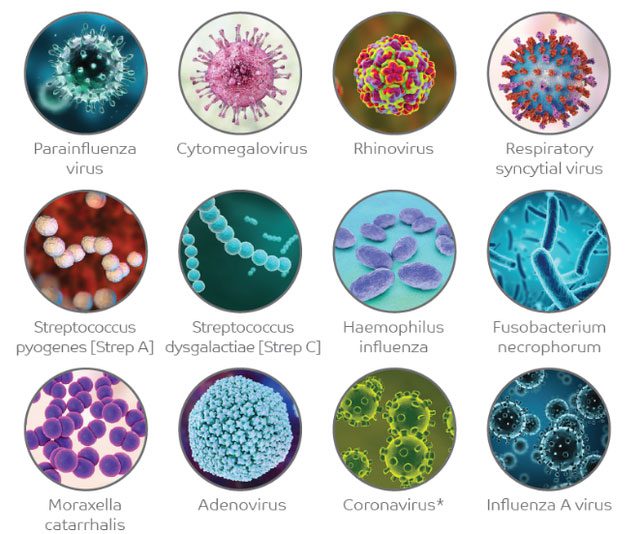Acute pharyngitis is one of the common ear, nose, and throat diseases, especially during seasonal changes and colder weather.
ThS.BS.CKII Le Nhat Vinh – treating physician at the Ear, Nose, and Throat Department, Nam Sai Gon International General Hospital – Ho Chi Minh City, has shared insights on how to alleviate discomfort and effectively treat sore throat conditions during seasonal transitions and cold weather.
Main Causes of Acute Pharyngitis
According to statistics from Shephard J Family Med Community Health (2014), 80% of the population experiences a sore throat at least once a year. Common symptoms include a swollen, red throat, pain, scratchiness, itching, and coughing, which are typical manifestations of acute pharyngitis.
The most common causes (accounting for 50-90%) are various types of viruses such as influenza virus, rhinovirus, and coronavirus.
In addition, bacteria such as Group A Streptococcus, diphtheria bacteria, and Fusobacterium necrophorum can also be responsible for the condition.

Some bacteria that cause acute pharyngitis.
Symptoms of Acute Pharyngitis
Acute pharyngitis may accompany conditions such as rhinitis and tonsillitis, which can cause discomfort and lead to confusion during diagnosis and treatment.
Viral pharyngitis and bacterial pharyngitis exhibit several distinct symptoms. Specifically, viral pharyngitis usually presents with mild to high fever, with some cases showing very low or no fever; a runny nose, nasal congestion; red and swollen eyes, excessive tearing; dry cough, pain in the throat, and pain when swallowing. Children may experience nausea, vomiting (especially after eating), diarrhea, and skin rashes.
On the other hand, bacterial pharyngitis may cause severe throat pain, fever (often above 38°C); swollen lymph nodes in the neck, throat swelling, and possible pus discharge; and red spots on the throat’s arch. Children may develop skin rashes, abdominal pain, nausea, vomiting, and diarrhea.
Treatment of Acute Pharyngitis
Treatment for acute pharyngitis cases depends on the underlying cause.
Viral pharyngitis does not respond to antibiotics, but the condition can self-resolve due to the body’s immune system. However, acute pharyngitis can lead to pain and discomfort in the throat, causing fatigue. Therefore, some patients may choose products such as menthol candies or antibacterial lozenges to alleviate these discomforts.
Some menthol candies provide a mild numbing effect on the throat tissues, offering temporary pain relief. Meanwhile, antibacterial lozenges containing active ingredients such as 2,4-Dichlorobenzyl alcohol, amylmetacresol, and vitamin C can help reduce pain and soothe long-term throat inflammation. Specifically, they kill viruses and bacteria—the main causes of throat pain—within a minute; provide pain relief lasting 2-3 hours; soothe and moisturize the throat; and boost immunity.

Some antibacterial lozenges may help soothe throat inflammation symptoms.
In cases of bacterial infection, doctors may prescribe oral antibiotics such as amoxicillin or penicillin. The purpose of using antibiotics is to prevent complications such as rheumatic fever or kidney issues. It is essential to complete the antibiotic course to prevent recurrence of the disease and avoid antibiotic resistance.
In addition to using lozenges to relieve acute pharyngitis symptoms, patients should also drink plenty of water, get adequate rest, gargle with warm salt water, and consume plenty of citrus fruits or vitamin-rich foods.


















































